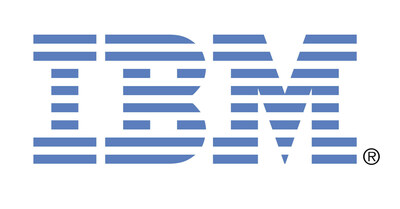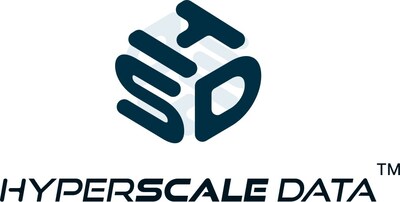Argonne Deploys New Groq System to ALCF AI Testbed, Providing AI Accelerator Access to Researchers Globally
Press Releases
Oct 17, 2023
MOUNTAIN VIEW, Calif. and LEMONT, Ill., Oct. 17, 2023 /PRNewswire/ — Groq, an artificial intelligence (AI) solutions company, and the US Department of Energy’s (DOE) Argonne National Laboratory announced today that Groq hardware is now available to researchers through the Argonne Leadership Computing Facility’s (ALCF) AI Testbed. The ALCF is a DOE Office of Science user facility that provides high-performance computing (HPC) resources and AI technologies for open science.
The Groq software and hardware ecosystem accelerates time to solution for complex AI problems, in particular inference. Using the GroqRack™ now deployed at Argonne, researchers working on critical challenges such as fusion energy, material design, imaging sciences, and drug discovery will benefit from the Groq system’s advantages, such as improved performance for a wide range of AI models.
“Standing up a GroqRack at Argonne National Laboratory reflects both the hard work of the Groq team and our strong partnership with Argonne, which will provide researchers the flexibility they need to innovate and push the boundaries of what’s possible with the ALCF AI Testbed,” said Jonathan Ross, CEO and founder of Groq.
Groq will be particularly useful in advancing Argonne’s efforts to develop and support an integrated research infrastructure that seamlessly integrates advanced computing resources with experimental facilities, such as light sources and fusion experiments, to accelerate the pace of discovery.
Registration is now open for the early December Groq AI Workshop. This hands-on training will introduce users, including university, national lab, and industry researchers working on open science, to the Groq system deployed at the ALCF AI Testbed for use in their science campaigns.
Michael E. Papka, ALCF Director, and Deputy Associate Lab Director for Argonne’s Computing, Environment, and Life Sciences Directorate shared, “Inference is a critical part of leveraging AI for science as it allows researchers to use trained machine learning models to make predictions or discover patterns in complex data. Incorporating Groq inference-based solutions into the ALCF AI Testbed further strengthens our portfolio of AI accelerator offerings to our research community.”
Argonne researchers are using the Groq AI platform to improve predictive capabilities in real-time for fusion energy science, helping to identify a safe operating region for plasma within a tokamak. The team is also exploring how to build workflows for fusion applications to connect traditional HPC to AI accelerators to mitigate large-scale disruptions in burning plasmas in experimental tokamak systems.
In another effort, Argonne and Groq partnered to advance COVID-19 drug discovery by accelerating the time to results from days to minutes by using AI models to help identify high-potential lead compounds to be used in clinical therapy trials. This same technique is being deployed in cancer drug discovery.
Aileen Black, President of Groq Government & Sales Public Sector, commented, “We’re thrilled to build upon our successful partnership with Argonne and collaborate with other DOE labs to advance LLM innovation. Our drug discovery work was just the beginning–we’re committed to enabling energy-efficient and scalable AI solutions for a sustainable computing future.”
The ALCF AI Testbed’s GroqRack compute cluster is open globally to researchers in academia, industry, or national labs. Anyone interested in using the system can submit project proposals via the ALCF’s Director’s Discretionary Program.
Additionally, Argonne will host Groq as one of their AI vendors during an SC23 tutorial, introducing researchers to novel AI accelerators for scientific computing. Join for the session.
About Groq
Groq is an AI solutions company and the inventor of the Language Processing Unit™ accelerator that is purpose-built and software-driven to power Large Language Models (LLMs) for the exploding AI market. For more information, visit www.groq.com.
Groq, the Groq logo, and other Groq marks are trademarks of Groq, Inc. Other names and brands may be claimed as the property of others. Reference to specific trade names, trademarks or otherwise, does not necessarily constitute or imply its endorsement or recommendation by Groq.
Copyright © 2023 Groq Inc. All rights reserved.
About Argonne National Laboratory
Argonne National Laboratory seeks solutions to pressing national problems in science and technology. The nation’s first national laboratory, Argonne conducts leading-edge basic and applied scientific research in virtually every scientific discipline. Argonne researchers work closely with researchers from hundreds of companies, universities, and federal, state and municipal agencies to help them solve their specific problems, advance America’s scientific leadership and prepare the nation for a better future. With employees from more than 60 nations, Argonne is managed by UChicago Argonne, LLC for the U.S. Department of Energy’s Office of Science.
CONTACT: [email protected]
![]() View original content to download multimedia:https://www.prnewswire.com/news-releases/argonne-deploys-new-groq-system-to-alcf-ai-testbed-providing-ai-accelerator-access-to-researchers-globally-301958340.html
View original content to download multimedia:https://www.prnewswire.com/news-releases/argonne-deploys-new-groq-system-to-alcf-ai-testbed-providing-ai-accelerator-access-to-researchers-globally-301958340.html
SOURCE Groq Inc





